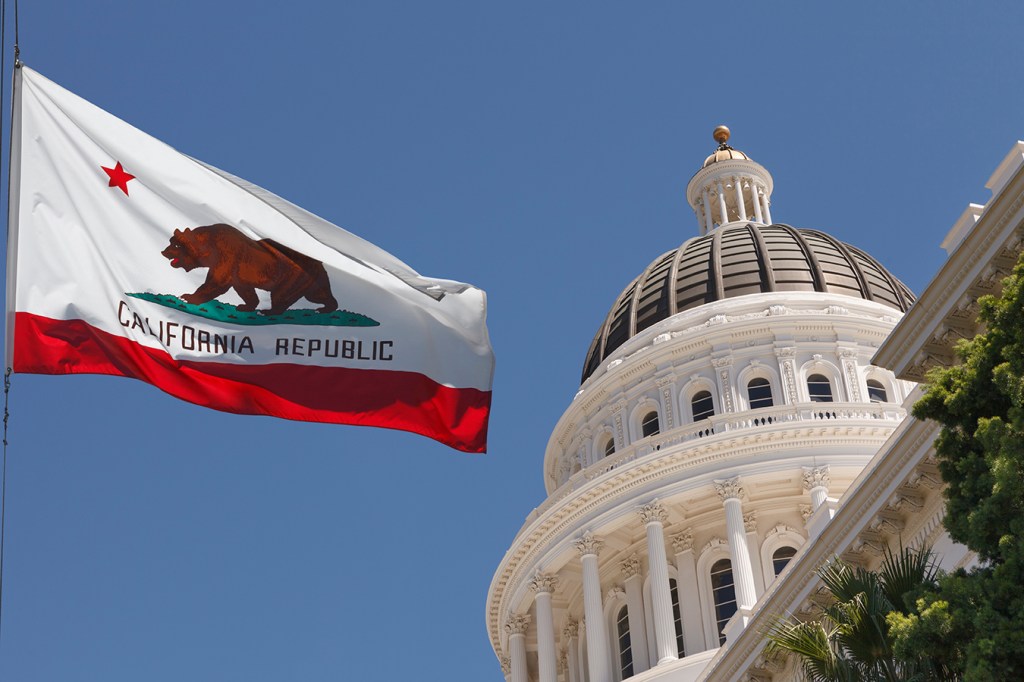Advocates of state-funded efforts to expand health insurance coverage for immigrants and some middle-class Californians will have to wait for the next governor before they can have any realistic hope of advancing that goal.
Several proposals to make coverage more accessible and affordable for millions of Californians were left out of the state’s 2018-19 budget, dealing a sharp setback to Democratic lawmakers who fashion themselves as leaders of the resistance against federal retrenchment on health care.
The budget takes effect July 1 and awaits the final approval of Democratic Gov. Jerry Brown.
Earlier in the year, Democratic lawmakers announced ambitious efforts to adopt policies that would bring California closer to universal health insurance coverage.
But until the new governor takes the reins next year, their plans — specifically, to offer comprehensive Medi-Cal health benefits to many adults who are in the country illegally and to provide state-funded subsidies for people who buy coverage through Covered California, the state insurance exchange — will likely remain little more than rallying cries.
“Nearly every Democrat on this floor has argued that health care should be a human right — not a privilege,” state Sen. Ricardo Lara, who is running for California insurance commissioner, said Monday on the floor of the Democrat-dominated Senate. The budget agreement, he said, “strips out a common-sense bicameral proposal to finally make those words real.”
Phil Ting, chair of the state Assembly’s budget committee, noted Brown’s well-known fiscal prudence and suggested the cost of the coverage-expanding proposals was too high for him to accept. Ting was optimistic the new governor would be more amenable.
“If it all works out, we’ll have a governor who has been a champion of not only universal coverage but single-payer,” Ting said, referring to Democratic candidate Gavin Newsom, who currently holds a large advantage in opinion polls over Republican rival John Cox.
“We would hope that proposals that move us toward that ultimate goal would be more well-received than in this administration,” Ting said.
If Newsom loses, however, it will be an entirely different story. Indeed, the choice before voters in November is a stark one.
Should Newsom become governor, “one of his first priorities will be having a comprehensive conversation about how we guarantee health care for every resident,” said Nathan Click, a spokesman for the Newsom campaign.
Giving undocumented adult immigrants access to Medi-Cal, the public health insurance program for low-income residents, and earmarking state dollars to help consumers buy coverage through Covered California “are two major parts of any claim to do that,” Click said.
Cox strongly opposes such government intervention in health care and has said that providing publicly funded care to undocumented immigrants “is objectionable on a lot of levels.”
One of the proposals nixed from the budget would have provided full Medi-Cal coverage to unauthorized immigrants 65 and older, at a cost of $75 million in the upcoming fiscal year and twice as much every year after that. Another would have extended Medi-Cal to undocumented immigrants 19 to 25 years old, costing $125 million in the first year and $250 million annually in subsequent years.
Two other proposed measures excluded from the budget would have offered financial aid to consumers who buy health plans through Covered California. One of them sought $300 million a year to supplement already existing federal premium assistance. Another requested $250 million annually in state tax credits for higher-income residents who do not qualify for federal help.
Democratic legislators are not giving up on these plans. They have authored bills, pending in the legislature, which would accomplish the same objectives as the failed budget proposals. But policy experts say they are unlikely to succeed, since Brown already made clear through the budget process that he wouldn’t pay for them.
“Even if [lawmakers] pass the bills, the governor still needs to sign them, and the chances of signing them when there are no allocated funds … doesn’t seem likely,” said Shannon McConville, a researcher at the Public Policy Institute of California.
More than half of the nearly 3 million uninsured Californians are ineligible for full Medi-Cal benefits or to buy subsidized insurance through Covered California because of their legal status.
Undocumented children under age 19 whose families’ incomes qualify became eligible for full Medi-Cal benefits two years ago, and more than 200,000 of them are now enrolled.
John Baackes, CEO of LA Care Health Plan, which offers managed-care Medi-Cal coverage, said he supports the coverage expansion effort, but there is reason to be wary of proposals to cover large numbers of unauthorized adult immigrants. An economic downturn, which is bound to happen sooner or later, could put unsustainable financial pressure on Medi-Cal, he said.
It is already a huge program, with more than 13 million enrollees — about one-third of the state’s population — Baackes noted. And coverage for undocumented immigrants comes from state-only funds, so in the next recession, “will that sudden drop of state revenue mean they can’t afford to cover everyone?” he asked.
For now, the foundation for coverage expansion has been laid, said Deborah Kelch, executive director of the Sacramento-based Insure the Uninsured Project.
She argued that the failure to enshrine those proposals in next year’s budget does not compromise California’s leadership on health care expansion and affordability. “I don’t think it takes us backwards,” she said. “If anything, it re-energizes our collective thinking.”
California Healthline reporter Pauline Bartolone contributed to this report.


